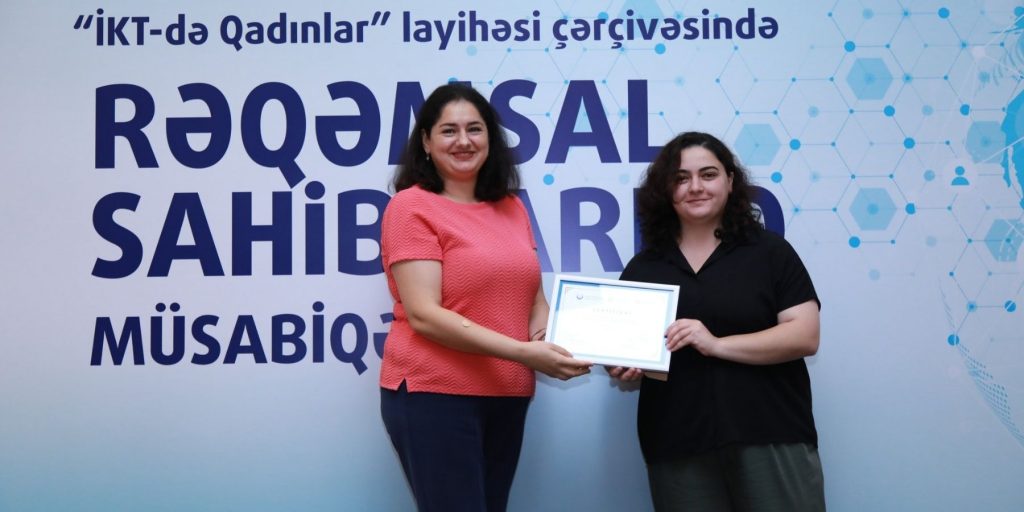
How female entrepreneurs can boost growth in Georgia
It is critical that female entrepreneurs receive support for the implementation of their ideas, says Mariam Maisuradze.
Entrepreneurship is challenging, but not because it demands a lot of effort, sleepless nights, disappointment, rejection, loss, and grief, but rather because others don’t trust in you when you first start this business.
Entrepreneurs are heroes and business is rife with risk. Particularly admirable heroines are female business owners. I met over 500 Georgian women entrepreneurs while researching my master’s thesis. Comparing their journey to mine was the plan. I was curious to find out if my lack of literacy was the root of the problems already in place or if it was a well-recognised and accepted standard.
The research I carried out for my thesis – in May 2022, looking at how female entrepreneurs access finance and technology and how they can use them to boost economic growth in Georgia – showed that 18.4 per cent of the entrepreneurs surveyed are from the handicrafts industry, while 27.3 per cent are from the service sector (crafts, handmade accessories and others).
Some 14.5 per cent of the entrepreneurs surveyed had been in business for a year or less, 23.6 per cent for one to two years, and 32.7 per cent for two to five years.
In terms of the number of employees, 54.5 per cent of the entrepreneurs surveyed have one to five employees, 14.5 per cent are still operating their businesses alone without any employees, 18.2 per cent believe their staff count is between five and 50, and just 12.7 per cent have 100 or more.
According to 45.5 per cent of the 500 business owners surveyed, starting a business in Georgia is more or less difficult for women. Only 18.2 per cent of respondents agree that conducting business today is not tough for women, while 36.4 per cent feel it is very difficult.

Sources of funding
Personal resources made up the primary source of investment for 72.7 per cent of the entrepreneurs surveyed, followed by bank loans, which were used as the initial funding source by 14.5 per cent of the respondents. Only 25.5 per cent of the initial investment had a value greater than 2000 lari, while 38.2 per cent was between 0 and 500 lari.
As the survey revealed, a sizable number of business owners participate in various funding programmes. In many cases, this participation is successful, as it was in our case (34.5 per cent). However, 30.9 per cent of respondents said they participated in funding programmes but did not receive a grant to launch or expand their businesses. 9.1 per cent of respondents have expressed scepticism about such programmes and do not plan to engage, while 25.5 per cent have not yet participated but plan to in the future.
Only 26.8 per cent of female entrepreneurs have received similar financial resources twice or more, which is a very low percentage. 23.2 per cent of female entrepreneurs have received money from initiatives just once.

Entrepreneurs learn about projects from friends (37 per cent), associations (7.4 per cent), sponsored beneficiaries (3.7 per cent), and social networks (85.2 per cent). The School of Young Entrepreneurs grant programme and Starta Women’s Acceleration Programme, both of which provided funding to 18.5 per cent of the entrepreneurs interviewed, respectively, are the next most popular projects, both of which were utilised by 38.9 per cent of the entrepreneurs who were interviewed.
Almost all of the representatives of technology projects that were spoken to said that they had finished the GITA grant programme and were now awaiting financing to expand their businesses. 92.7 per cent of respondents agree that technology is highly significant in business activities when asked about technological resources and their role in it. 7.3 per cent of enterprises, mostly handicraft businesses that operate alone, employ no one, and sell their goods mostly through “street fairs”, feel it is more or less significant.
Resources
Entrepreneurs who assert that technology resources are crucial to their businesses list a number of resources along with their advantages. The majority of them use technology to streamline internal communication procedures (41.5 per cent), as well as information (39.6 per cent), employee management (34 per cent), marketing initiatives (34 per cent), inventory management (18.9 per cent), time management (24.5 per cent), inventory accounting (9.4 per cent), project management (22.6 per cent), and task monitoring (13.2 per cent). Only 24.5 per cent have a fully functional website, 5.7 per cent use CRM, and 20.8 per cent streamline financial procedures with technology. Each business owner was able to describe the resources they used at the end of the survey. Technology is a means for almost all of them to streamline business operations and save money.
The growth of entrepreneurship can benefit the economy and society in a number of ways. New enterprises are founded by entrepreneurs. They create products and services that promote growth and employment. Entrepreneurs boost GDP, new products or technologies create new markets and wealth, higher employment rates and incomes boost the tax base of the nation, and so on.
As a result, the state has more options to use the collected funds for more significant public projects. Entrepreneurs influence society. They contribute to neighbourhood improvement initiatives and support the objectives of charities and other non-profit groups.
In order to make better use of available resources and increase the amount of money in the nation, it is critical that female entrepreneurs receive support for the implementation of their ideas.
Author
Mariam Maisuradze, Founder and CEO of Maisu, a Georgian handmade clothing brand
New Free Courses — Made for Ambitious Women Entrepreneurs!
It’s time to grow smarter, adapt faster, and take your business global.
Explore two powerful courses available exclusively to She’s Next members:
The Reinvention Masterclass for Start-up Founders
Beyond Borders: Building for Global Success
Enroll today — it’s free!






Responses